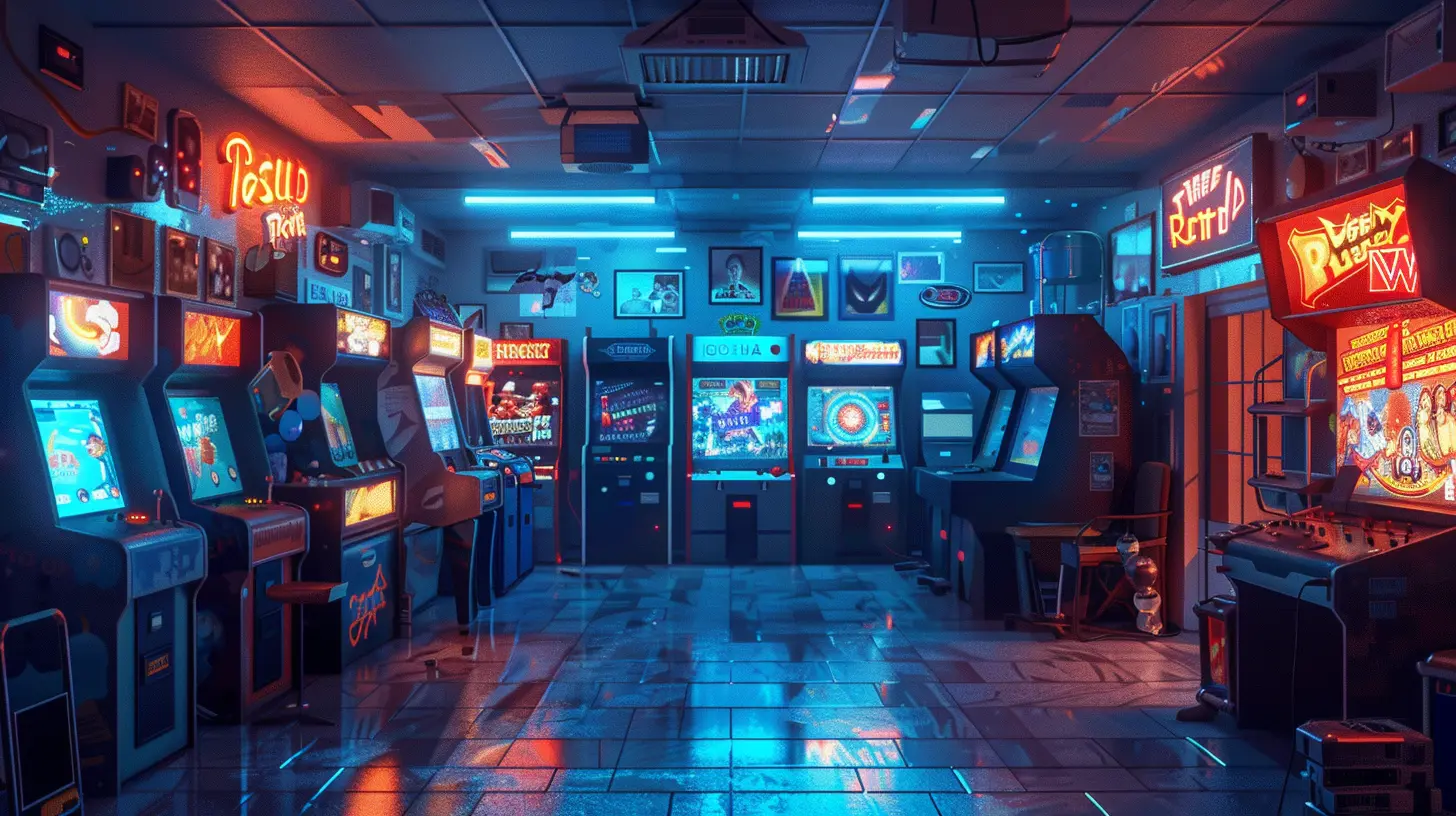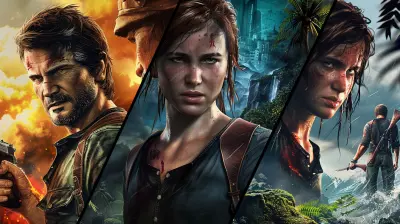The Pros and Cons of Spending Real Money on Virtual Goods
6 March 2025
Let’s be honest for a second. Have you ever caught yourself squinting at your screen, credit card in hand, debating if that $20 "Dragon Slayer Mega Sword" in your favorite game is worth missing out on three cups of coffee this week? Yeah, me too. Spending real money on virtual goods is like trying to explain to your grandma why you just paid for imaginary clothes instead of, you know, actual clothes.
But hey, here we are in the world of online gaming, where shiny cosmetic skins, mounts, and loot boxes scream "BUY ME" louder than your stomach at 3 a.m. when you're hunting snacks. So let’s break it down: What’s the deal with spending real money on non-existent goods? Is it genius or madness? Let’s dive into the pros and cons... and maybe laugh a little along the way.
The Pros of Spending Real Money on Virtual Goods
Ah, the sweet, sweet allure of swiping your credit card for digital awesomeness. You’re not just buying pixels; you’re buying experience. Let’s talk about the upsides.1. Instant Gratification, Baby!
You know that rush you feel when you hit "Purchase" and suddenly your character has the coolest armor in the game? It’s like Christmas morning, but without the awkward family photos. Spending money speeds up the grind—who has time to farm for 400 hours for the Golden Unicorn Mount of Destiny when you can just buy it and ride off into the (virtual) sunset?2. Look Good, Feel Good
Who doesn’t want their character to look like a boss? Let’s face it: appearance matters, even in the digital realm. Spending cash on virtual goods can help you stand out in a sea of basic weapon skins and default avatars. It's a bit like walking into a party wearing a tuxedo when everyone else showed up in sweatpants. People notice.And hey, sometimes looking cool is half the battle. You may still lose, but at least you’ll lose in style!
3. Support Your Favorite Developers
Here’s the noble angle: When you spend money on virtual goods, you're helping game developers keep the lights on (and maybe buy them a coffee or two). Many free-to-play games rely on microtransactions to survive—and if we want our favorite games to keep updating and evolving, we need to throw some coins in the collection plate.Think of it this way: Supporting developers is like tipping your waiter. Sure, you could just enjoy the meal and leave, but wouldn’t it feel better to give something back?
4. It’s Your Money, Your Rules
You worked hard for your cash, so why shouldn’t you spend it on something that makes you happy—even if it’s a digital sword that glows in the dark? Life is short, and enjoyment comes in many flavors. If buying that legendary skin gives you joy, then who’s to say it wasn’t worth it? YOLO, right?
The Cons of Spending Real Money on Virtual Goods
Of course, every shiny coin has its tarnished side. Let’s talk about why spending real money on virtual goods might not be as amazing as unwrapping a loot box.1. Your Wallet’s Crying
Let’s address the obvious: Spending money on virtual goods can turn your bank account into a sad, empty shell of its former self. Remember that time you decided to splurge on one little in-game item, and then five minutes later you were in a full-on shopping spree? Yeah, it adds up faster than you think.And here’s the kicker: When the game becomes obsolete (or you just stop playing), all those items you bought? Gone. Poof. Like tears in the rain.
2. "Pay-to-Win" Drama
Ah, the great debate: Does spending money give you an unfair advantage? In games with competitive elements, paying for better weapons, armor, or power-ups can be seen as downright dirty. Imagine showing up to a marathon, only to find out the guy next to you paid for a jetpack. Fair? Not so much.This "pay-to-win" mechanic often ruins the experience for players who want to succeed based on skill rather than the size of their wallets. Plus, it can create some serious resentment in the gaming community. Nobody wants to be that guy.
3. The Slippery Slope of Addiction
Here’s the thing about microtransactions: They’re sneaky little devils. It’s just $5, right? Then $10... then $50... and suddenly, you’re $200 deep into a game you only downloaded last week.It’s designed that way! Developers know how to dangle the carrot just out of reach, making you think, "Just one more purchase, and I’ll be satisfied." Spoiler alert: You won’t be. It’s like trying to eat just one potato chip; the system is rigged against you.
4. FOMO Is Real
Fear of Missing Out (FOMO)—the bane of gamers everywhere. Limited-time skins, exclusive items, and seasonal events are all designed to hit you where it hurts: your anxiety. Ever seen a rare cosmetic in the shop and thought, "If I don’t buy this now, it’s gone forever"? Yep, that’s a trap.And guess what? Most of the time, you won’t even remember that item a week later. But your credit card statement? Oh, that’ll remind you. 
The Great Balancing Act: How to Spend Smartly
Okay, so spending money on virtual goods isn’t all sunshine and rainbows, but it’s not the worst thing in the world either. Like most things in life, moderation is key. If you’re going to open your wallet, you might as well do it wisely.1. Set a Budget
Before you even think about buying that sparkly new armor set, decide how much you’re willing to spend on the game each month. Treat it like any other entertainment expense—whether it’s Netflix, movie tickets, or overpriced avocado toast.2. Think Long-Term
Ask yourself: "Will I still enjoy this purchase in a month? Or am I just buying it for the novelty?" If the answer is the latter, put your wallet away and take a deep breath. That digital cowboy hat isn’t going anywhere (and if it is, you probably didn’t need it that badly).3. Don’t Chase the High
Remember that instant gratification we talked about earlier? Yeah, don’t let it consume you. Buying virtual goods should be fun, not a compulsive coping mechanism. Keep it light, and don’t let your purchases spiral out of control.4. Earn It In-Game (When Possible)
Sometimes, the joy of earning that rare item through sheer determination and skill outweighs the convenience of buying it. Sure, it’s more time-consuming, but it can feel a lot more rewarding in the long run. Plus, you’ll get some serious bragging rights.
Final Thoughts
Spending real money on virtual goods is like ordering dessert at a fancy restaurant: completely unnecessary but oh-so-satisfying. It’s all about finding the right balance between indulging in your guilty pleasures and making sure you’re not, you know, eating instant noodles for the next month because you blew your budget on a unicorn skin.At the end of the day, gaming is supposed to be fun, and if that $10 pet companion or $50 weapon skin makes you smile, then go for it. Just don’t forget to keep your financial priorities in check—and maybe save a little extra for that next big game release.
all images in this post were generated using AI tools
Category:
In Game PurchasesAuthor:

Lana Johnson
Discussion
rate this article
5 comments
Patrick Wilkins
Investing real money in virtual goods reflects our values and priorities, blurring lines between reality and fantasy, and questioning the true cost of enjoyment.
April 1, 2025 at 4:03 AM

Lana Johnson
Investing in virtual goods does indeed reflect our values, but it also invites us to consider the implications of our spending habits and the balance between digital enjoyment and real-world responsibilities.
Nyari McFarlin
Great insights! Balance spending for fun and financial wisdom!
March 17, 2025 at 4:56 PM

Lana Johnson
Thank you! Finding that balance is key to enjoying virtual goods while managing finances wisely.
Tank Cross
Great insights! Understanding the balance of virtual spending can enhance our gaming experience while keeping it fun.
March 10, 2025 at 5:36 AM

Lana Johnson
Thank you! I'm glad you found the insights helpful. Finding that balance is key to an enjoyable gaming experience!
Tessa McIlwain
Spending real money on virtual goods is like buying a fancy cloud to float on—you'll feel great until it rains and you realize it’s just a digital drizzle. Enjoy the view, though!
March 9, 2025 at 5:33 PM

Lana Johnson
That's a clever analogy! While virtual goods can enhance our experience, it's important to stay mindful of their temporary nature.
Bella Lewis
When considering the purchase of virtual goods, weigh the immediate enjoyment and personalization they offer against the potential for overspending and diminishing returns. It's crucial to maintain a balanced approach, ensuring that spending enhances the gaming experience without negatively impacting your finances.
March 9, 2025 at 5:02 AM

Lana Johnson
Thank you for your insightful comment! Balancing enjoyment with financial responsibility is key to a positive experience with virtual goods.
MORE POSTS

The Growing Trend of Live Gaming Podcast Recordings

Can Indie Games Compete Without Microtransactions in Today’s Market?

How to Use Twitch Analytics to Understand and Grow Your Channel

Adapting Novels and Movies Into Adventure Games: Success or Failure?

Cross-Platform Titles That Work Surprisingly Well on Mobile